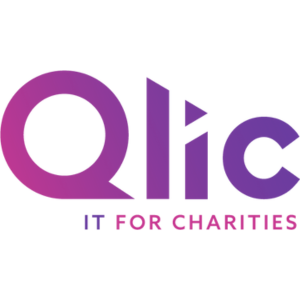Insights
INSIGHTS
All Topics
My Account
How improved finance management could save you more than money
05 Aug 2020by Aidan Paterson
How prioritising finance management can lead to increased trust and success in fundraising
Over the last few months, the economic repercussions of COVID-19 have posed an existential threat to many charities. The dire economic forecasts that drew so much discussion in the sector at the outbreak of the pandemic are becoming a reality for many charities. A number of organisations have closed due to a lack of funding. More will follow.
An accurate assessment of the financial health of the UK charity sector has never been more vital. Yet research indicates that many charities are not publishing detailed financial records.
This a problem for several reasons. Chief among them is a lack of transparency. Without clear and accurate financial records that detail how income is spent, funders (both private and public) are left in the dark.
Non-profit organisations operate under a range of pressures, but perhaps the most prominent of these are the expectations of funders. Whether the majority of your funding comes from government funding or private donations, charities must now operate under increased scrutiny. The prevalence of social media and traditional news reporting has led to calls for greater transparency.
In short, people will want to know where the money goes
Why Finance Management Is Important
Accounting and financial management are activities with a specific purpose.
The primary purpose is to measure impact. By keeping detailed and accurate records of income and expenditure, you can generate meaningful impact reporting. In the charity sector, impact is usually measured in terms of engagement with service users, or by achieving targets set by trustees.
Sound financial record-keeping is a crucial component of this impact reporting. This is because it provides key stakeholders, who are often not involved in day-to-day activities, with data to judge whether or not projects, campaigns and initiatives are successful. This, in turn, helps to inform their decisions and judgements on how to work moving forward.
Bridging the funding gap
The total addressable market of funding available to charities (through both government grants and private donations) post-COVID-19 is expected to be lower than before.
This means that charities will face increased pressure in securing vital funding.
It is important to demonstrate that your funding is being spent effectively. Clear and detailed impact reporting will help you to show funders how their money is being spent. Greater transparency ensures greater trust. Trust in charities has actually risen during COVID-19. But with a shrinking donation pool, charities that can prove to funders they are spending money effectively will be in pole position to secure further funding.
Risk Management
A risk is anything that prevents a charity from achieving their aims.
More specifically, financial risk management refers to a decision-making process by which a charity ensures that it has the resources to continue operations in the wake of unforeseen events. For example, a global pandemic.
Effective charity leaders must identify key risks and take decisions that will avoid, reduce or mitigate them. Trustees of charities with an income exceeding £500,000 a year are required to issue a ‘risk statement’ in their annual report. This statement should outline the key risks that they have identified, as well as to provide details of contingency plans and other methods for avoiding or mitigating these risks.
Two Main Types of Risk
Broadly speaking, risks fall into two primary categories: strategic risks and operational risks.
- Strategic risks - risks that you cannot control and are significant enough to undermine or prevent your efforts to achieve your goals
- Operational risks - risks that you can control and which are to be expected as part of your day-to-day operations
Recapping The Key Benefits:
The key benefits of proper finance management for charities are as follows:
- Increased understanding of your organisation’s income and expenditure
- Greater transparency for funders and stakeholders
- Increased ability to bid for and secure funding
- Increased ability to plan for and mitigate both strategic and operations risks
Accounting Software
To many smaller charities, particularly those without a dedicated finance role, or with limited understanding of financial practices, this can all seem a bit daunting.
Luckily, there are digital solutions to make things easier. There are a number of products out there, including some available at discounted charity rates.
Sage Intacct is a cloud-based financial management system designed for small to medium-sized organisations. It allows you to easily consolidate information across multiple business units and conduct real-time financial analysis.
Sage Intacct has a number of tools to make financial reporting simpler, including a built-in role-based dashboard that instantly captures financial and operational information from across your organisation.
Aidan Paterson
More on this topic
Recommended Products
21 Feb 2025by Ioan Marc Jones
How charities stopped centring service users
20 Feb 2025by Laura Stanley
The simplest way to collect contactless donationsSponsored Article
Our Events
Charity Digital Academy
Our courses aim, in just three hours, to enhance soft skills and hard skills, boost your knowledge of finance and artificial intelligence, and supercharge your digital capabilities. Check out some of the incredible options by clicking here.


















